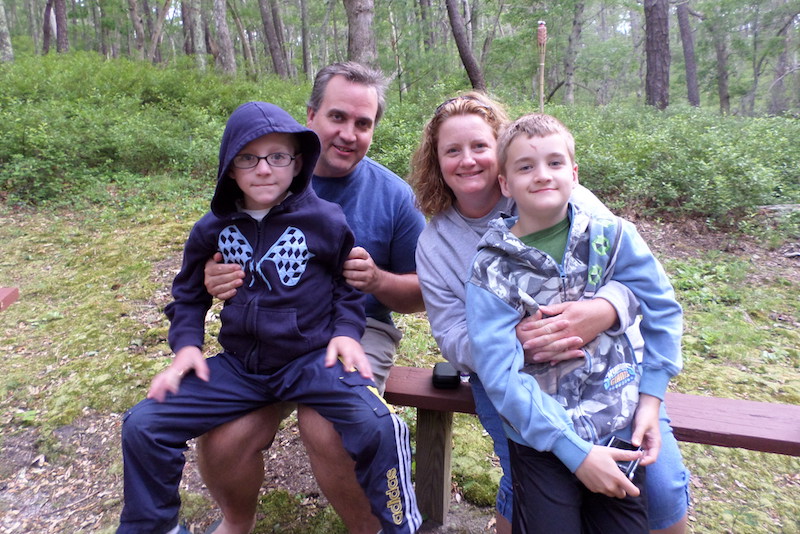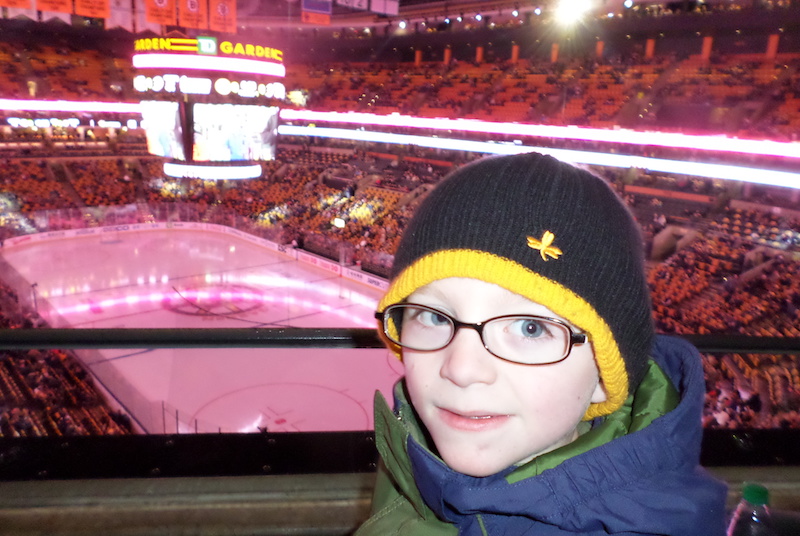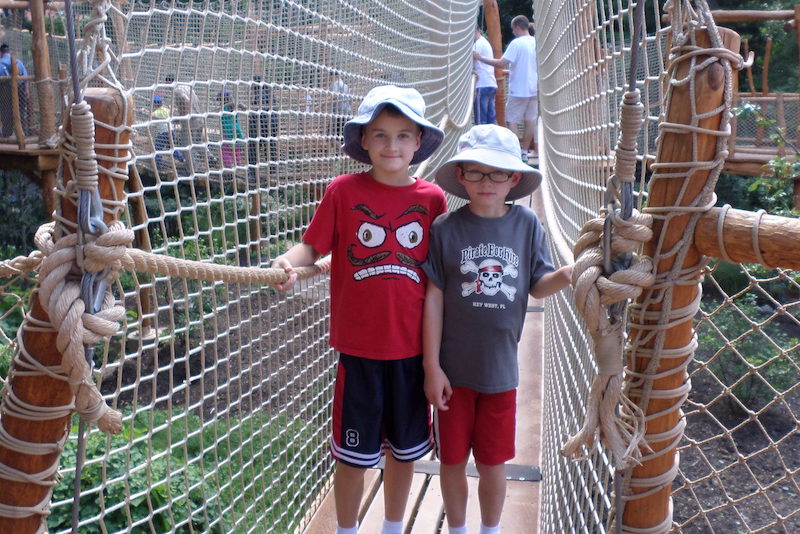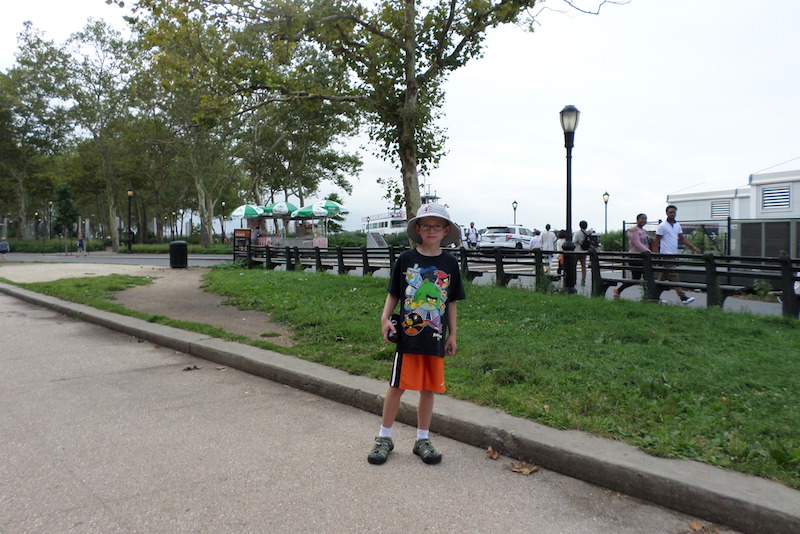Whatever it takes: Fighting for Michael

Michael stood at the top of the hill, staring down at the glittering white snow. The prospect of skiing to the bottom was scary — on previous trips, he’d refused to try, worried that he would fall. But this time was different. He was ready to take a chance. Attempting to balance without using poles, he pushed himself forward and glided through the powder as his family cheered him on. By the end of the day, the 8-year-old had sailed down the slopes five times, all by himself.
The accomplishment was even more meaningful for his parents, Bill and Lisa Smith, who have watched him fight to survive — and thrive — since he was an infant. “He had some issues with spitting up and turning blue and was diagnosed with acid reflux when he was about a month old,” says Bill. “But we had suspicions that something else was wrong.”

Setting an example
Sure enough, three days later, Michael experienced volvulus, a life-threatening disorder in which the intestines twist, cutting off blood supply to the small bowel. As a result, surgeons had to remove about 90 percent of his small intestines, leaving him with a serious condition called short bowel syndrome, which prevents the body from extracting the nutrients it needs to survive. Doctors determined that Michael had also suffered multiple strokes. His physicians referred the family to the Center for Advanced Intestinal Rehabilitation (CAIR) at Boston Children’s Hospital.
There, Michael underwent a series of procedures with Dr. Tom Jaksic, who reconnected his bowel and inserted a central line, a G-J-tube and, eventually, a G-tube to provide nutrition support. The Smiths spent as much time as they could with their little boy during the long six months he was in the hospital, all while Lisa and her parents continued to care for their older son, Matthew, and Bill commuted back and forth to work. “It was tough,” he admits. “But we wanted to set an example for both of our boys that you don’t quit and you keep going. And Michael took that example to a whole new level.”

Being proactive
Their time in the hospital was made easier by the staff at the Hale Center for Families, who supported them during their stay. Yet bringing Michael home was also challenging. “We had to deal with the stark realization that his life wouldn’t be what we initially envisioned for him,” says Bill. “But we tried to keep the perspective that Michael’s worst day could be another child’s best day. It helped stop us from ruminating on what could or should have been for him.”
Inspired by their son’s fighting spirit, the couple determined to learn everything they could about his condition and how to care for it. “We try be proactive in keeping him hydrated and treating minor problems at home so he doesn’t need to be hospitalized,” Bill explains. “The team at CAIR listens to our ideas and trusts us. They’re partners in our fight to help Michael live as long and happy a life as possible.”
As most parents of medically complex kids know, a good part of that battle involves dealing with insurance companies. While he still relies on his G-tube to provide him with nutrients, Michael has learned that he loves to eat. His parents credit his participation in a feeding and swallowing program with overcoming oral aversions and broadening his palate. “We fought hard to get insurance to cover that program,” remembers Bill. “But it was worth it.”

Never give up
Today, Michael is an avid athlete who loves watching sports and playing basketball and soccer. Although stroke-related damage has left him with severe memory challenges, he enjoys looking at books and is learning to read — and didn’t miss a single day of school last year. “He’s never totally healthy, but he’s a wonderful child,” says his father. “He wants to do what he sees his brother and other kids doing, and he doesn’t get frustrated when he needs to do it differently.”
Bill and Lisa say that, as stressful as it can be, they’re grateful for the progress Michael has made. “I don’t want to call it a miracle, because that cheapens the efforts of all the medical experts, of his mother and of Michael himself,” Bill says. “He’s 10 times tougher than I’ll ever be. His motto is ‘whatever it takes.’ He never gives up — and neither will we.”
Learn about the Center for Advanced Intestinal Rehabilitation.
Related Posts :
-

Then and now: Catching up with some of our short bowel syndrome kids
Also known as “short gut,” short bowel syndrome is a life-threatening condition in which a lack of functioning intestine can ...
-

Catching up with Lucas eight years after his multivisceral transplant
Lucas and his mom, Heather, aren’t shy talking about his health journey and his multivisceral transplant. “If other families ...
-

Studies pinpoint risk factors for complications of pediatric intestinal failure
Pediatric intestinal failure occurs when patients lack the amount of intestine necessary for growth and development. As advances in treatment ...
-

Finding specialized care for short bowel syndrome: Meet Makai
Eric Maldonado was picking up some groceries one day last fall when he saw a familiar face: The woman, a ...





